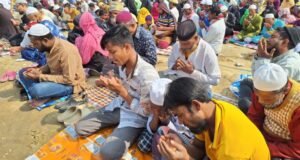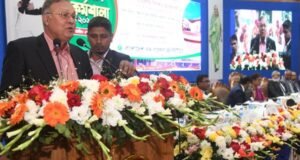 France is committed to “destroying” the so-called Islamic State group after Friday’s deadly attacks, President Francois Hollande has said.
France is committed to “destroying” the so-called Islamic State group after Friday’s deadly attacks, President Francois Hollande has said.
He said he would table a bill to extend the state of emergency declared after the attacks for three months and would suggest changes to the constitution.
France’s military campaign against IS in Iraq and Syria will also intensify.
IS says it carried out the attacks on bars, restaurants, a concert hall and a stadium in which 129 people died.
Speaking during a joint session of both houses of parliament, Mr Hollande said the constitution needed to be amended as “we need an appropriate tool we can use without having to resort to the state of emergency”.
Other measures he said would be pursued included:
5,000 extra police posts in the next two years and no new cuts in the defence budget
Making it easier to strip dual nationals of their French citizenship if they are convicted of a terrorist offence, as long as this did not render them stateless
Speeding up the deportation of foreigners who pose “a particularly grave threat to the security of the nation”
Pushing for greater European action against arms trafficking and greater penalties for it in France
Mr Hollande said he would travel to meet US President Barack Obama and Russian President Vladimir Putin in the coming days to discuss action against the group.
US Secretary of State John Kerry arrived in Paris on Monday evening to show support for “America’s oldest friend” against what he called “psychopathic monsters”.
At a G20 summit in Turkey, world leaders promised tighter co-operation in the wake of the attacks.
Mr Obama said the US and France had made a new agreement on intelligence sharing but said US military advisers thought sending ground troops to combat Isis would be a mistake.
In his address, Mr Hollande reiterated his opposition to Syrian President Bashar al-Assad remaining in power but said “our enemy in Syria is Daesh [IS]”.
He promised more resources for the security forces and said the Charles de Gaulle aircraft carrier would be sent on Thursday to bolster the military campaign against IS.
On Sunday night, French aircraft attacked Raqqa, IS’s stronghold in Syria. French officials said 10 jets had dropped 20 guided bombs targeting sites including a command centre, a recruitment centre for jihadists, a munitions depot and a training camp.
IS has issued a statement saying the raid targeted empty locations and that there were no casualties.
This was a solemn speech in which one felt the president genuinely striving – under the weight of appalling circumstance – to give service to the nation.
He knows that the people expect a riposte. He said it would come in two forms: military and judicial.
In Syria there will be intensified strikes, and new co-ordination with the US and Russia.
In France there will be a three-month extension of the state of emergency; more police and magistrates; possible powers to strip dual nationals of French citizenship.
There will also be a reform of the constitution – creating a new status short of all-out war in which exceptional powers can be handed to police.
But President Hollande is better at empathy than at talking tough. His opponents will give him slack because today no-one wants to expose dissent.
But are these measures really going to be enough? Or are they just more administrative knob-twiddling, when the people feel in deadly peril?
Authorities say that one of the attackers was the same man who used a Syrian passport in the name of Ahmad al-Mohammad and whose fingerprints match those taken by the Greek authorities after he arrived with migrants on the island of Leros in October.
One Greek official on the island told the BBC that the man had aroused suspicion when he arrived and said that more highly trained intelligence officers might have been able to apprehend him.
The German anti-immigrant group Pegida held a rally of some 9,000 people in the city of Dresden, with the movement’s leader telling the crowd the attacks were a result of “immigration policy”.
As well as the attackers themselves, investigators are also reported to be focusing on a Belgian of Moroccan descent who is described as the possible mastermind of the attacks.
Abdelhamid Abaoud, 27, lived in the Molenbeek neighbourhood of Brussels, as did two of the attackers, and is now believed to be based in Syria, where he has risen through the ranks of IS.
On Monday evening a police operation took place in the Neudorf area of the eastern city of Strasbourg but was later reported to have been prompted by a false alarm.
In the early hours of Monday, a total of 23 people were arrested, 104 put under house arrest, and dozens of weapons seized in more than 168 raids on suspected Islamist militants across France.
Belgian police say two people arrested on Saturday were charged on Monday with “participating in a terrorist attack”.
They were among seven people detained in Belgium at the weekend.
Five of them were later released, including Mohammed Abdeslam, the brother of two suspects – Brahim Abdeslam, killed during the attacks, and Salah Abdeslam, who is on the run.
Suspected Paris attackers
Salah Abdeslam, 26 – urgently sought by police
Brahim Abdeslam, 31 – named as attacker who died near Bataclan concert hall
Omar Ismail Mostefai, 29, from near Paris – died in attack on Bataclan
Bilal Hadfi, 20 – named as attacker who died at Stade de France
Ahmad al-Mohammad, 25, from Idlib, Syria – died at Stade de France (unverified)
Samy Amimour, 28, from near Paris – suicide bomber at Bataclan
Two other attackers died during the assaults in the city
Mohammed Abdeslam emerged from his house to speak to the media on Monday and said his family did not know where Salah was.
Stressing his innocence, he said the family’s thoughts were “with the families of the victims”.
“We are moved by what happened, at no point we could have thought that my brothers were involved in this but you must understand that we have a mother and he is still her son,” he said.
“We noticed absolutely nothing, my two brothers were just normal. We still don’t know exactly what happened.”
France held a nationwide minute of silence at midday local time (11:00 GMT) for the victims, led by Mr Hollande at the Sorbonne University. The silence was also observed in countries across the continent.
 Weekly Bangla Mirror | Bangla Mirror, Bangladeshi news in UK, bangla mirror news
Weekly Bangla Mirror | Bangla Mirror, Bangladeshi news in UK, bangla mirror news





